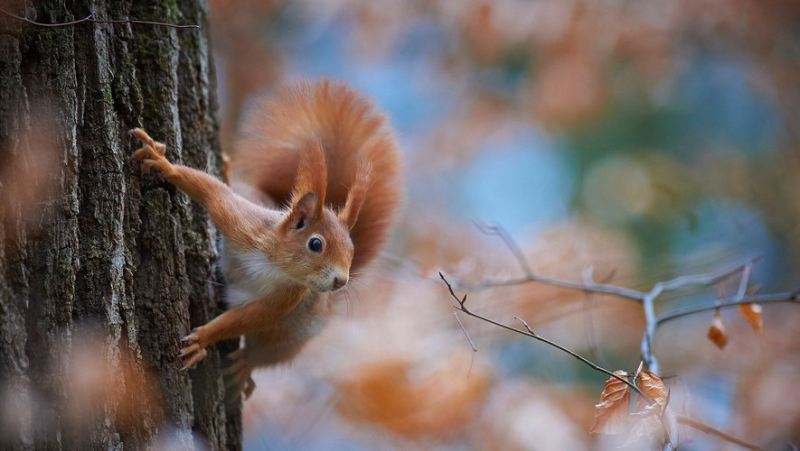Why squirrels live shorter lives when faced with adversity ?

The difficulties that red squirrels in Yukon (Canada) encounter during their first year of life can shorten their life expectancy by 14%, according to a study. Michael Roeder/Getty Images
For several years, the scientific community has been interested in the effects of stress on animals. Studies have shown in particular that the occurrence of traumatic events during the first years of life accelerates the aging of the body, which leads to a reduction in life expectancy. A particularly salient phenomenon in the case of red squirrels.
A Canadian-American research team reached this conclusion after observing, over more than thirty years, the behavior of thousands of North American red squirrels living in Yukon, North America. These thick-furred rodents do not have an easy life in this region of western Canada located on the border with Alaska, between cold weather, food shortages, territorial disputes and lynx attacks.
This hostile daily life can be a source of stress for these small animals, especially when they are young. While Yukon red squirrels live an average of three and a half years, researchers have found that the difficulties they encounter during their first year of life can shorten their life expectancy by 14%.
But this is not inevitable. Scientists have noticed that the natural environment in which these squirrels live presents a particularity. Every three to seven years, the seeds of white spruce trees – their favorite food – abound during what Lauren Petrullo calls a "food boom" .
A rare phenomenon
This phenomenon, although rare, can mitigate the harmful effects of the difficult first years. "If a squirrel had a rough first year of life, but was lucky enough to experience a food boom in its second year, it will live just as long or even longer than its congeners, despite the ordeals it went through in its early days", explains Lauren Petrullo, assistant professor at the University of Arizona, in a press release .
Lauren Petrullo and her colleagues tried to create a food boom by feeding Yukon red squirrels peanut butter. But this additional supply of food did not have the desired effect, as we can read in the journal Proceedings of the Royal Society B, where the academics published their study. "This suggests that the buffering effect we observe is not just due to an increase in available calories. It likely results from changes in broader demographic dynamics such as intraspecific competition", says Lauren Petrullo.
The researchers believe that these discoveries could allow a better understanding of the mechanisms of resilience. "The results obtained in the red squirrel echo this what we know about how early-life adversity can shorten the life expectancy of humans and other primates as adults", underlines Lauren Petrullo. It remains to be seen whether these small mammals will be able to adapt to the effects of climate change on their natural habitat, and therefore demonstrate resilience.




